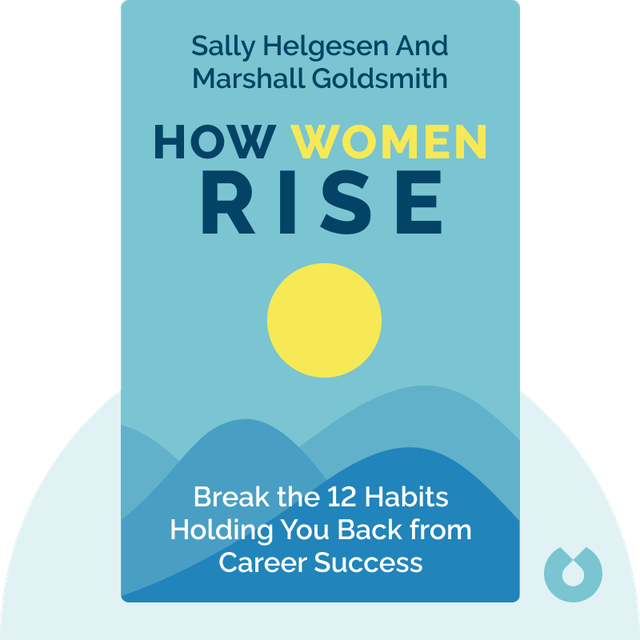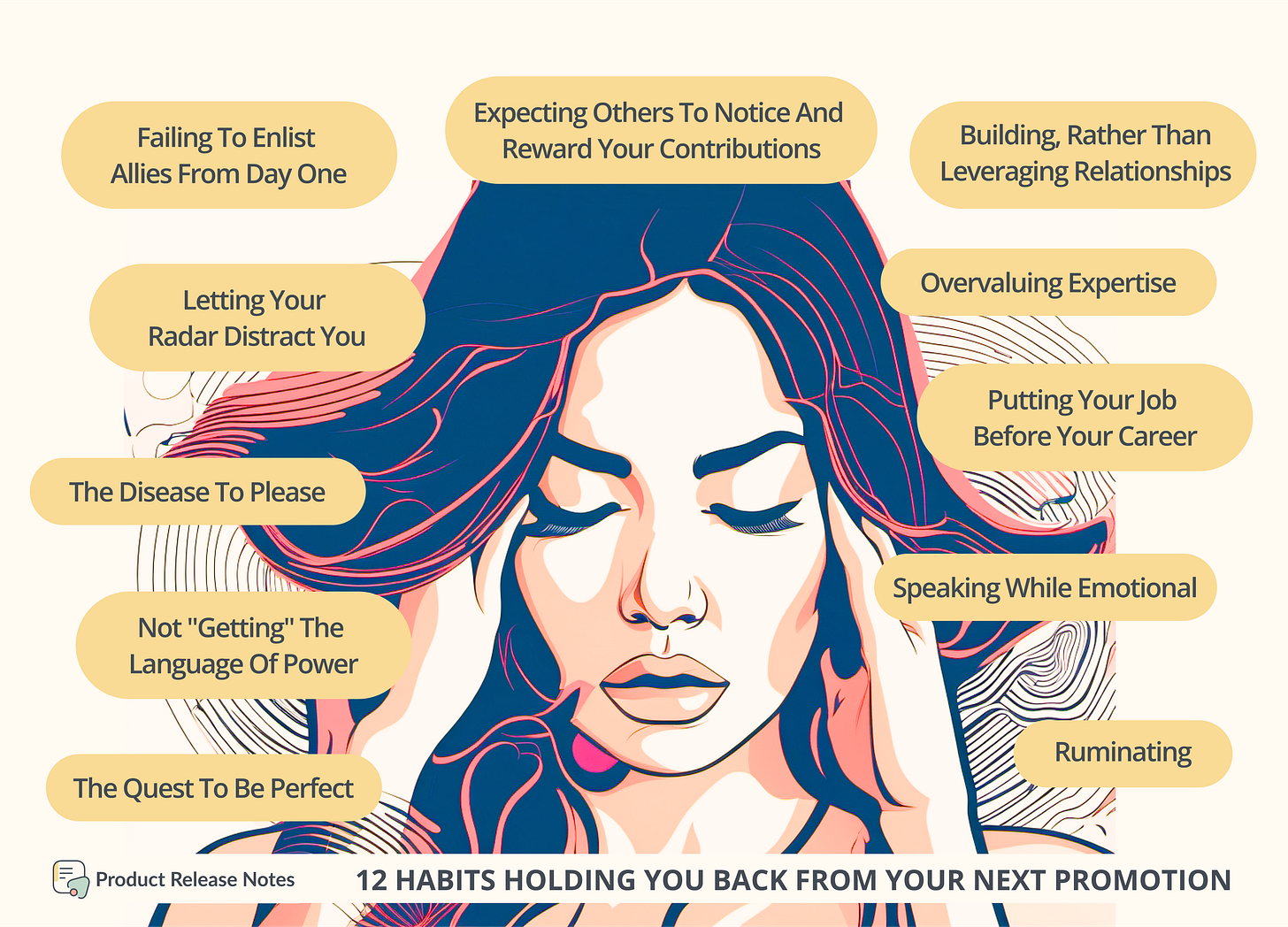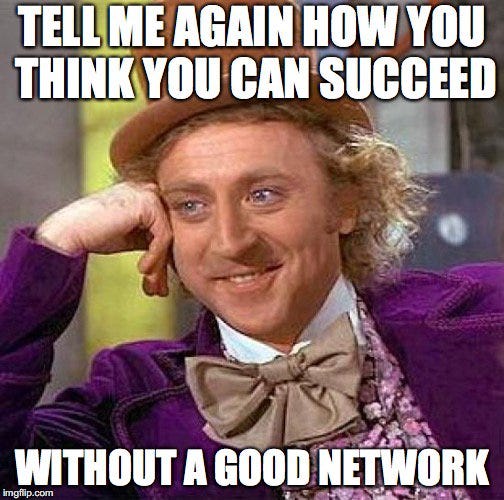12 Habits Holding You Back From Your Next Promotion
Overcome the habits that are harming you career and you didn't know.
Now that Halloween is gone and Thanksgiving is near around the corner, I feel like sharing with you some thoughts about a topic that is near and dear to my heart. Yet don’t get too excited because this is not a spooky story! 👻
About two months ago, I joined an excellent cohort to improve my communication and influence skills. The course was imparted by Laboratoria+ is a company dedicated to empowering women to develop and grow in their careers. They do this by fostering a professional community with other women in top positions to share their experiences in live sessions, mentorships, workshops, and more.
From all the available resources of this cohort, they shared with us the book “How Women Rise.” Is a book co-written by Sally Helgesen and Marshall Goldsmith that seeks to empower women by identifying 12 common habits that can be obstacles on their path to success.
Here’s brief summary of the 12 bad habits:
Reluctance to Claim Your Achievements: Women often downplay their achievements and wait to get noticed. This habit may impact their visibility in professional circles.
Expecting Others to Spontaneously Notice and Reward Your Contributions: Similar to the first habit, expecting others to see your work without showcasing it can limit career prospects.
Overvaluing Expertise: While expertise is necessary, overly focusing on it can restrict women from seizing leadership roles that require more generalist skills.
Building, Rather than Leveraging Relationships: Building relationships is foundational, but not leveraging them when needed can be a potential roadblock.
Failing to Enlist Allies from Day One: The habit of trying to prove oneself before building alliances can hinder growth.
Putting Your Job Before Your Career: The hyper-focus on the current job rather than looking at the long-term career can slow progress.
The Disease to Please: Over-emphasizing on being liked can prevent women from making tough decisions that might be critical for their roles.
The Quest to be Perfect: This habit could lead to unnecessary pressure and hinder risk-taking, a vital part of any leadership role.
Speaking While Emotional: Displaying emotions, especially in challenging situations, can sometimes subvert credibility.
Ruminating: Overthinking and focusing excessively on issues can cause undue stress and affect productivity.
Letting Your Radar Distract You: Paying too much attention to the nuanced behaviors of others can sometimes distract from larger goals.
Not "Getting" the Language of Power: Understanding unspoken power dynamics in an organization is crucial for leadership roles.
Although these habits are not exclusive of a gender or a specific role, studies mentioned in the book, and the coaching experience of both authors demonstrate that women tend to experience them more.
Even at the beginning of reading the book, I was reluctant if this book was really for me. Until l started to read about other women stories. YES, real-life women! The stories touched my heart and enlightened me, showing practical examples of the habits that hold women back. Let me share a few of these compelling anecdotes with you.
The Story of Priya: In the overvaluing expertise trap
Remember the habit of “overvaluing expertise”? The book tells the tale of Priya, a talented engineer in a tech firm. She's so focused on being the absolute best in her current role that she underestimates the power of broadening her leadership skills outside her technical expertise. It's only when her mentor advises her to switch her approach and Priya takes on roles outside her comfort zone, that she truly starts to rise.
The Story of Patrice: Seeking for perfectionism
Patrice's story is a perfect example of the quest to be perfect. An executive in a marketing firm, Patrice keeps trying to meet her idealistic standards, putting intense pressure on herself that ultimately causes burnout. Recognizing this, she takes a step back, revises her expectations, and allows herself more room to breathe and be creative.
The Story of Jessica: Wonderfully humble, unintentionally invisible
Jessica was the ideal team player, always quick to credit her team and her partner for any project's success. As fabulous as this quality of deflecting praise onto others sounds, it turned out to be a stumbling block during a crucial leadership interview within her organization.
One day, she and her partner were recognized for the outstanding job they were both doing, that they even got an interview for the local news. This was a great opportunity for her to showcase what she did to make the project successful. Instead of that, she never mentioned herself, not even once!
Jessica kept shining the spotlight on her wonderful team and her co-leader. She never mentioned what she accomplished and she spent the whole interview talking about him and the good things he did. The next day, when she read the column on the news, she was shocked and angry. She realized her colleague never mentioned the great leader she was, instead he just talked about himself.
After some harsh feedback she received from the company’s board, Jessica realized that while humility was her strength, it had clouded her unique contributions during this crucial interaction. So she started practicing a more balanced approach, acknowledging her team’s effort but also effectively articulating her part in those successes, her individual achievements, and the challenges she had overcome.
Jessica's story resonates with so many women. It underlines the fine line between being wonderfully humble and unintentionally invisible. The takeaway here isn't just about claiming achievements, but also effectively communicating one's worth.
How to overcome these 12 habits?
Helgesen and Goldsmith believe the way out starts with awareness. It's about shining a flashlight on habits we may have dusted under the rug or perhaps weren't even aware of. We need to recognize how these habits might be holding us back from scaling the career ladder, obstructing our growth. That happened to me by reading the book!
Once we've taken that step, the next is about courage - courage to claim our achievements proudly, to communicate our worth, our value. To step into the limelight and let the world truly see us for who we are and what we're capable of.
Yet, balance is key. We need to hold our expertise in one hand while extending the other to build and leverage relationships. It's not enough to be fantastic at what we do; we also need a support network — our cheerleaders, mentors, colleagues, and friends.
The authors emphasize that it's less about complete transformation and more about adjustments, small changes, and tweaks in our behaviors that can lead to significant outcomes. It's about managing our tendency to please everyone, being cautious about over committing, and preventing our intuition from distracting us.
In the end, this lecture isn't about turning ourselves inside out. It's about embracing and unleashing the true strength that's been within us all along.
My Thoughts and Experience as a Woman in Product
After reading the book, I looked back and reflect on how some of these habits were holding me back years ago. I passed from the solitary-developer journey to a dynamic product manager, I can't help but amaze of myself and the transformation I've been through.
Let me be frank here. As a lone-wolf developer, my world revolved around code - precise, logical, predictable. I cherished the solitude, the freedom to create without distractions, the steady rhythm of keys clicking under my fingertips. I'd always thought my expertise was my exclusive superpower. I was so wrong.
Then came my transition into product management. A shift huge enough to knock anyone off their feet, and oh boy, was I struggling! I found myself in the middle of a whirlwind of team meetings, client interactions, and stakeholder decisions.
Have you experienced the stress of not having room in your calendar? or the struggle to not know what’s going on?
For me, it wasn't just about producing flawless code anymore; it was about people – understanding them, connecting with them, and building relationships.
Having hard times as a PM, taught me to value relationships as much as my skills. That’s when I began consciously building and leveraging relationships instead of working in isolation. That shift, both daunting and liberating, was a game-changer.
The insights from "How Women Rise" didn't just enrich me; they made me remember and reflect on those situations and how much I’ve learned through the pass of the years. Also, it was a great reminder that I’m not alone in my journey. Indeed, I've come to understand that connections and relationships aren't just crucial—they’re empowering.
In essence, my journey wasn't about changing who I am, but embracing a more complete version of myself. Because as it turns out, I wasn't meant to just write code forever; I was designed to write my own story, always evolving, always rising. Now that is the empowering story I truly stand for 🙌
And how about you, what’s your story? How did you end up in your role? I’d love to hear how your journey’s have been shaping up. Let me know in the comments!






We are glad you made the switch Elena. You have so many great contributions to the community!
Great overview of the self-sabotage tendencies that hold us back